Mr. Somma, you have been an independent Director of the Development Bank of Kazakhstan for four years, and previously you were the Head of the Eurasia Competitiveness Programme of the OECD. Given your experience, how would you assess the role of DBK in the economy today?
- Government-owned financial institutions, like National Management Company Baiterek holding and DBK, have a main role in providing high-quality financing for the implementation of government initiatives. In a recent article that I wrote on “Government-Private Sector Relations for Sustainable Development in Central Asia” (publication “Monitoring Central Asia and the Caspian Area – Development Policies, Regional Trends, and Italian Interests”, Ca’ Foscari University of Venezia, Italy), I note that in recent years, beginning from the crisis in 2007 - 2008, Kazakh and global businesses increasingly were asking for the support from the government. However, due to the Covid-19 pandemic, effective and strong cooperation between government and business has become even more fundamental. DBK is an important link between companies and the government, and is not only a financial tool, but also a policy tool of the government. For example, DBK could further feed back to the policy makers of the country those companies’ needs that they see on the ground, therefore facilitating government-business co-operation.
DBK provides support to strategic sectors of the economy, including downstream energy, chemical industry, and selected manufacturing sectors. I believe that today the government and the bank need to increase financing for the private sector - this is the key to sustainable and high-quality economic growth in such a difficult time. The private sector – through industries such as agro-technology, bio and pharma - is the driver of such an important economic diversification today, the application of modern technologies, the creation of qualified and sustainable jobs, also import substitution. This is the international standard for diversification, and this approach has been recommended by the OECD. Oil and gas will continue to be the backbone of the country's economy for some time, but through institutions like DBK, the government will be able to continue to develop the private sector, striving to introduce more innovation, sustainability and high-quality diversification.
How would you assess the financial condition of DBK in 2019?
- DBK is more relevant for the economy today than ever before. My assessment of the financials of DBK are based on how many projects we financed, which share of loans was granted to the private sector, and which is the impact of DBK on the economy. This is DBK’s mission. In 2019 the overall financing of DBK was above 480 billion tenge, and this is up from 2018 by about 30 billion tenge. Also, the share of loans that were granted to the private sector increased to over 60%. Regarding the results of the companies that we support, since 2014 that volume of products manufactured increased by 58.6%, export increased - almost 60% between 2018 and 2019.
What I am most proud of is the creation of 1700 new jobs in the companies we finance.
As for DBK indicators, last year, we had a positive return on equity of 2.72%. The level of risks was balanced. Provision levels for 2019 were at 4.68% of the loan portfolio. DBK in terms of numbers is achieving its objectives while keeping the accounts in good order.
It is important to note that COVID-19 adversely impacted the markets of DBK’s clients in terms of demand drop and currency devaluation, but also disrupted supply chains. On the one hand, the drop of demand and currency devaluation affected the top-line of DBK’s clients. On the other hand, disrupted global value chains are impairing DBK’s clients’ ability to source, produce and delivery. The full extent of consequences of such crisis is still unfolding as we speak and might span across years, at least for some sectors of the economy. DBK, within the framework of its mandate, works in four main areas on an anti-crisis plan: support for financial stability of the Bank, maintaining a high quality portfolio of loans, properly managing the liquidity of the DBK, and managing assets and liabilities. And all these measures ultimately support our clients which in turn help them keep over 25 thousand jobs.
In your opinion, what initiatives help DBK improve its operations and become a more effective institution?
- I think it includes enhancing IT systems, they include the digitalization of DBK, which is making better the business processes, digitalizing DBK, mapping and streamlining business processes, and most importantly, continuing to nurture and reward employees.
One of the most important instruments that the bank has is project financing. In your opinion, what important steps has DBK already taken and what is still ahead in the coming years in this direction?
- The positive feature of this tool is that we can finance off-balance sheet projects not only on the basis of assets, but also on the basis of the cash flow that is generated during the project's operation. Projects like these are very appropriate for sectors such as energy, especially renewable energy. So, by using project financing, we are able to stimulate such projects which in some cases might not find financing in the traditional bank. Between 2017 and 2019, the Bank received 11 applications for project financing. Some of them are already in operation - I have seen them personally. These projects are part of a sustainable development plan. In 2019, we approved a number of sustainable development types of projects beyond renewable energy: for example, solar plants in Kapshagai, and projects like providing access, broadband access to rural places of Kazakhstan using modern fiber-optic technology. Also, we finance such important projects called “Astana EXPO” wind power plant, hydroelectric power plant and the Saryarka Gas Pipeline.

Risk management issues are one of top and tricky issues. And during a pandemic, effective risk management is a special art …
- Actually, the easiest job in the world which is to give people money and the most difficult job is getting this money back. Part of DBK’s funds come from taxpayers' money, so risk management is a special responsibility within the work that we do.
Now, the risk management model of DBK is well-equipped to cope with economic crises like the one we are living in right now. At the end of 2019, the non-performing loans of DBK accounted for about 1.7% of the gross volume of the loan portfolio of the Bank, which by international standards is quite low. The various departments of the bank are increasingly working in close cooperation to identify, evaluate and minimize risks on an ongoing basis at all stages of lending: approval, payment, servicing and loan repayment. In addition, our risk management system continues to improve. In the last few years, we optimized the lending process with the help of international consulting, expanded the range of products to be more specific to different types of project risks. The various departments of the Bank are increasingly working with each other in close cooperation to identify, evaluate, anticipate and minimize risks on an ongoing basis, be them project inherent risks, economic and financial risks, or currency risks. COVID-19, and the drop in oil price and at the same time the devaluation of national currency, put a lot of stress on our risk management. However, the system is strong enough, so we can navigate well even with such a storm in the global markets.
In your work, you stand up for gender and age equality, for the involvement of people with disabilities in work. Could you tell us more about this?
-Indeed, if you look at total employees of DBK majority is women. We have women in the Board of Directors, in the Management Board, at Director level, managing director level. And of course, I believe that we shouldn’t be content because we have women in top positions, we should continue.
And I say that not only because of the question of social justice but in the best interest of the Bank itself. Because as we like to say in the Board, you should find genius everywhere and it doesn’t matter whether this genius is man or woman, when it’s disabled or not, when it’s young or less young. And simply if there is any discrimination, the Bank may have less opportunities to fulfil its mandate. So, take away discrimination in every sense and there will be more opportunities for even better serve the clients, and ultimately even better impact to the overall economy of Kazakhstan. And so, we should make a point in insisting on becoming more and more inclusive. At DBK, we work to find ways to increasingly motivate our clients to become more inclusive and sustainable, and I believe that DBK itself shall one day become the bank for sustainable development of Kazakhstan. As an example of practical tool for sustainability, I believe in the concept of sustainability scorecard. It is a strategic decision-making tool, based on a set of standard questions related to each project under assessment. For example, how many young people will the project employ, how many women, how many people with disabilities, how many experienced workers will it requalify or re-employ? Depending on answers to the questions, the scorecard would assign sustainability points to each project. Lower interest rate and/or fast approval track could be granted to projects with higher sustainability score.
At the core of sustainability there is the team. This means that we should encourage, motivate and support colleagues according to their competence and qualifications.
As for the team. How is the human resource development system built in DBK?
- Human resources in DBK is a very topic question, and we speak constantly about it at Board level. I am in my fourth year as independent director of the Bank, and my first-hand experience is that colleagues who work in the Bank could have a job in Wall Street or in London, and have chosen to provide their talents and skills to serve their country. And it is important to emphasize that we in the Board of Directors see this. This means that we should encourage them according to their competence and qualifications. I’m not talking only about the total compensation which depends on the cost of living of each country, also considering that DBK is a state-owned company and there is an obvious balance that must be taken across entities of the state. We keep working to further improve the compensation system and better reward the best employees of the Bank which on average are excellent employees. And second, we keep working on everything that is non cash, like training, promotions and career track, mobility. Therefore, we promote people within the company, and support their professional growth within the Baiterek holding and our sister companies. We have no positions that our employees could not fill.
There are some success stories which I am proud of. One of them is our Chairman of the Management Board, Sarkulov Abay. He started his career at DBK in 2007 as a Manager, and by 2016 had risen to the position of Deputy Chairman of the Bank's management Board. In 2017, Mr. Sarkulov became the Chairman of the Management Board of our sister company Damu entrepreneurship development Fund, and last year he returned to DBK as Chairman of the Management Board. By any means, this is a successful story, and I do believe that all employees of the Bank shall have such career opportunities. Providing such working conditions will allow DBK to grow with its team, and, ultimately, will positively impact the development of Kazakhstan.












